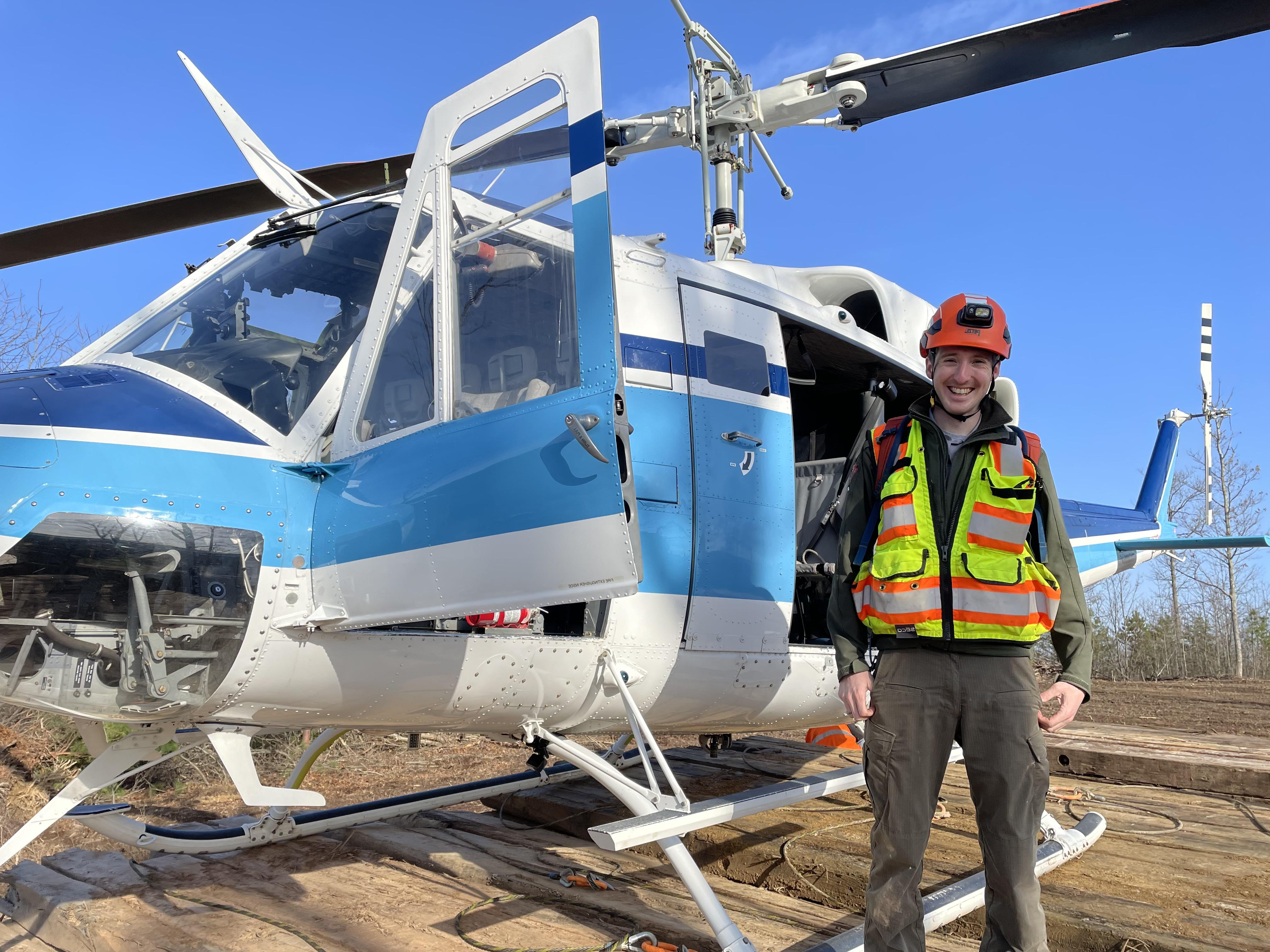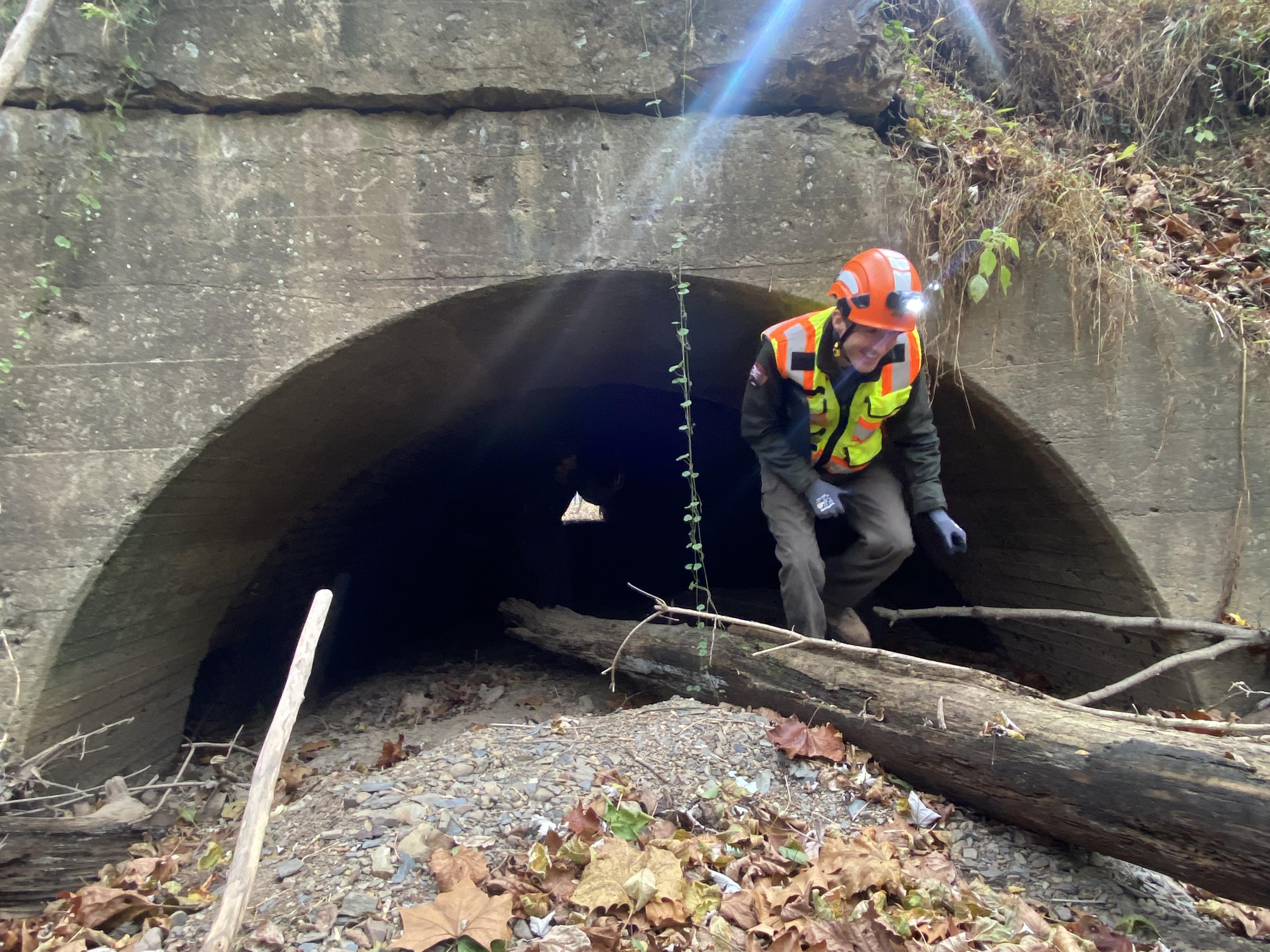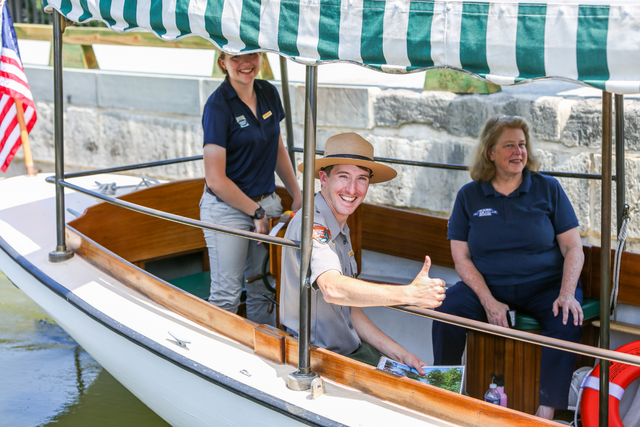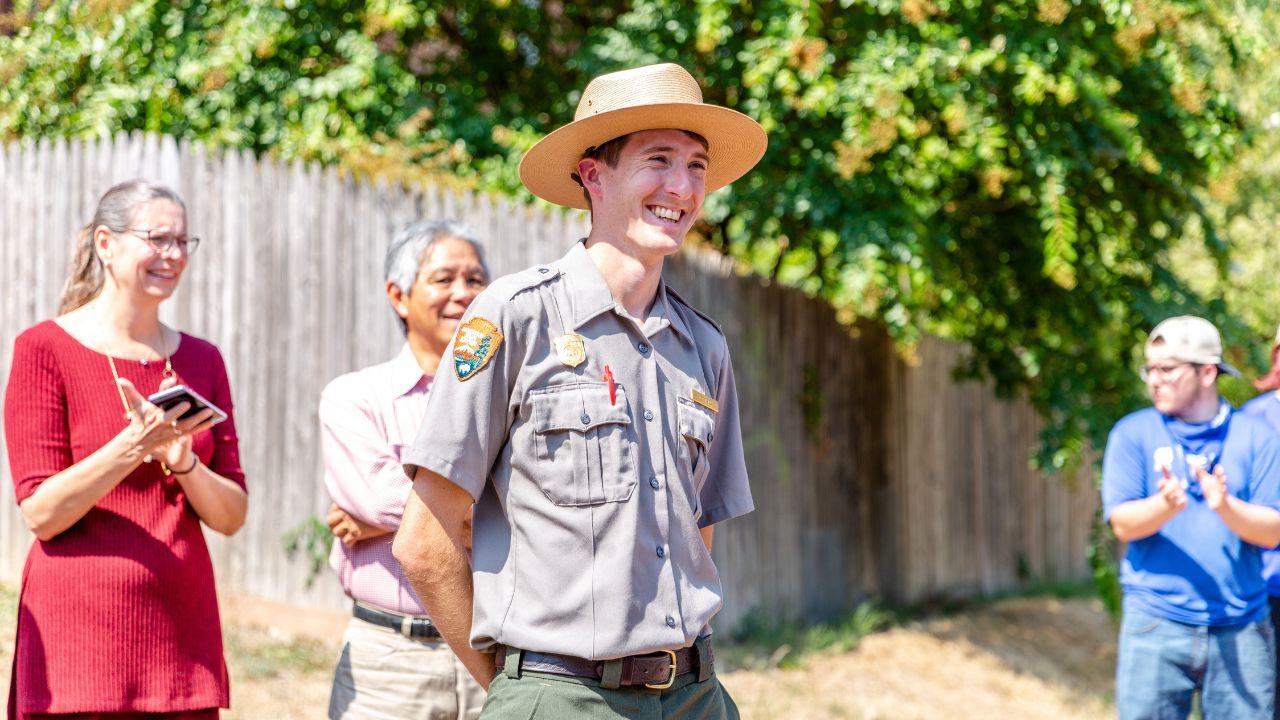
Caring For Creation

 Joe Reed graduated from Geneva in 2008 with a Bachelor of Science in Engineering (BSE) before earning a master’s degree from John Hopkins Whiting School of Engineering. Joe, his wife Kimberly, and their kids live in Hagerstown, Maryland, where he currently works as a civil engineer for the National Park Service at the Chesapeake & Ohio Canal National Historical Park.
Joe Reed graduated from Geneva in 2008 with a Bachelor of Science in Engineering (BSE) before earning a master’s degree from John Hopkins Whiting School of Engineering. Joe, his wife Kimberly, and their kids live in Hagerstown, Maryland, where he currently works as a civil engineer for the National Park Service at the Chesapeake & Ohio Canal National Historical Park.
Pro Christo et Patria has remained a driving force for Joe throughout his life. Early on in his career, Joe had a printed copy of Geneva’s motto displayed at the base of his computer monitor at work. Not only was it a conversation starter, it was a reminder to him of why he does his work. As an employee of the federal government in the public sector, Joe serves the American people and Christ in all that he does. The motto is a reminder to Joe to live in a manner befitting Colossians 3, “And whatever you do, in word or deed, do everything in the name of the Lord Jesus.”
Joe transferred to Geneva during the spring semester of his freshmen year. He had been running a movie theater and attending a community college in his Maryland hometown, but felt the call to pursue civil engineering, a vocation that would challenge him and foster his love of the outdoors. Joe’s undergraduate years were key in his professional development as he engaged Geneva’s core curriculum, studied civil engineering, and served as the president of Geneva’s chapter of the American Society of Civil Engineers (ASCE).
 Studying under a Christian worldview was vital to Joe. He has memories of professors such as James Gidley, PhD, explaining entropy in thermodynamics from a Christian perspective, as well as teachings that expressed the created order through the workings of geotechnical engineering. Joe’s experiences in mainstream academia have amplified the importance of the Christian worldview in STEM courses. When taught under this worldview, you know the shared grounds for scientific discoveries and can trust that the teachings present truth.
Studying under a Christian worldview was vital to Joe. He has memories of professors such as James Gidley, PhD, explaining entropy in thermodynamics from a Christian perspective, as well as teachings that expressed the created order through the workings of geotechnical engineering. Joe’s experiences in mainstream academia have amplified the importance of the Christian worldview in STEM courses. When taught under this worldview, you know the shared grounds for scientific discoveries and can trust that the teachings present truth.
Geneva’s engineering degree program is ABET-accredited, a critical component for alumni such as Joe who work towards professional licensure through the engineering-in-training (EIT) certification to ultimately become a licensed professional engineer (PE).
As a student, Joe learned from licensed professional engineers in the classroom, whose real-world experience provided invaluable lessons. “[These professors] have a lot of real-life experience and it’s not all just academic. There’s a big difference … between theory and practice.” As every engineer knows, the technical work is about much more than theories; if calculations are slightly off in practice, the consequences are serious.
Hands-on projects like the senior design capstone provide opportunities to test theories in controlled environments, teaching team-building and survey data collection as well. “Engineering is a team sport,” says Joe. Learning to work with others was a lesson in identifying skillsets and understanding how to best complement each other’s giftings to effectively work together.
 The small student-to-teacher ratios at Geneva allowed for personal connections to flourish. “Not only do you have the quality of education, but you have the personal relationships with the professors,” says Joe. “The teachers know you, and the classes are small enough that you can’t really fall into the background.”
The small student-to-teacher ratios at Geneva allowed for personal connections to flourish. “Not only do you have the quality of education, but you have the personal relationships with the professors,” says Joe. “The teachers know you, and the classes are small enough that you can’t really fall into the background.”
Joe recalls a memory in which a fellow student didn’t show up at a regular class session. The professor immediately noticed the empty seat. Upon finding out from his peers that this student was in his dorm room, the professor suggested calling the student to check in on him. “It’s that level of personal [at Geneva],” says Joe. “He actually came down [to class] because we called him.”
Though some may look at smaller schools and worry that high-caliber opportunities will be sacrificed, Joe insists it’s the opposite. Small schools like Geneva offer quality education alongside personal relationships and a robust network of alumni that provides a leg up in the workplace.
After graduating in May of 2008, Joe accepted a job offer from the U.S. Army Corps of Engineers in the Baltimore District, eventually becoming the levy safety program manager. The missional vocation of engineering was evident as he and his coworkers worked in the “thick of the natural created world” to help people by building structural designs.
The work of an engineer in the natural world requires a care for and study of creation, leading to “the natural revelations about our Creator [and] the fantastic things that He’s created.” As Joe developed his skills as an engineer, a number of floods doled out devasting consequences on communities. “It was a very humbling experience because you realize that this is a constant challenge of finite creatures in an environment created by an infinite God. You realize how small we are and how little we know.” Joe works with purpose in his field to mitigate human harm, but as he says, “There’s always a bigger storm [and] there’s only one person who truly can control it – and that’s not me.”
In 2016, Joe transferred to the National Park Service, serving the Chesapeake & Ohio Canal National Historical Park. It’s “like a playground for engineers,” says Joe. Growing up, it was his dream to be an engineer or a park ranger – now he gets to be both. But he’s not the park ranger who answers your questions about birds or flowers; he works with a robust construction program operating with $50 million a year as an engineering services team leader for the entire 184.5 miles of park.
 The national park dates back to the 1820s, showcasing 200 years of engineering history and boasted to be one of the largest civil engineering projects in our country. The park connects navigational systems from the District of Columbia to the west end of Maryland. Joe works with many historical structures – what they call “cultural resources” in the field – and integrates an appreciation for the arts and history in his design considerations.
The national park dates back to the 1820s, showcasing 200 years of engineering history and boasted to be one of the largest civil engineering projects in our country. The park connects navigational systems from the District of Columbia to the west end of Maryland. Joe works with many historical structures – what they call “cultural resources” in the field – and integrates an appreciation for the arts and history in his design considerations.
One thing he didn’t expect he’d need quite so much in his engineering work was the humanities coursework at Geneva. “At the time, I didn’t realize the true value of the whole liberal arts core … you don’t realize when it’s happening in your life how valuable it will be until you get older. That’s the value of experience.”
Joe has been honored with awards throughout his years of work, including the 2022 Federal Engineer of the Year award for the National Park Service awarded by the National Society of Professional Engineers. Though the awards are received with honor, Joe attributes real success to knowing that he’s done the best he can in the work God has given him and creating spaces for people to safely experience the beauty and history of our created world.
Beyond his vocational calling, Joe has used his giftings in engineering to serve on his church’s building committee, helping to rehabilitate their 100-year-old building. Joe utilizes his team-building and volunteer-management skills that he first developed as president of the ASCE at Geneva. Additionally, his core trainings in the humanities and biblical studies laid a foundation for his service in teaching Sunday School classes and overseeing youth group.
Joe’s dedicated and joyful work as a civil engineer at the National Park Service and in his personal life speaks loudly of his commitment to the motto of Geneva College. Pro Christo et Patria may not always be typed out and visibly posted before him, but, as Joe says, “its forever in the background of my mind.”
Erika Kauffman '20
